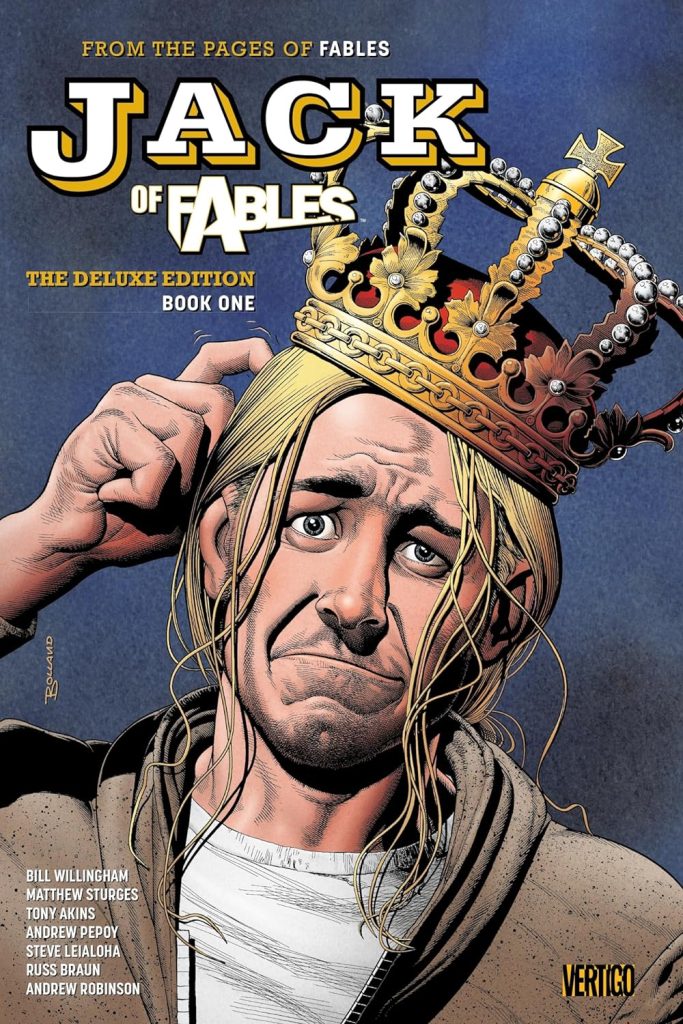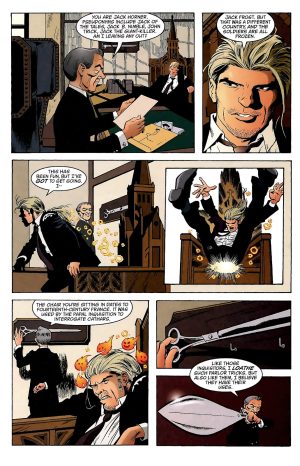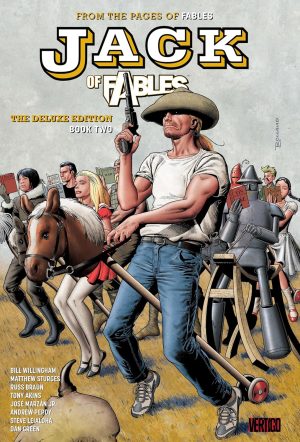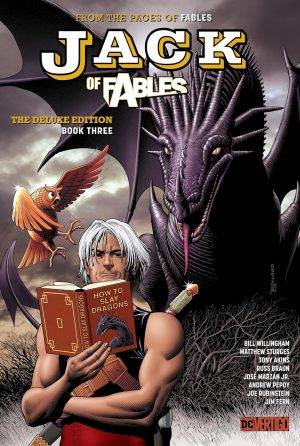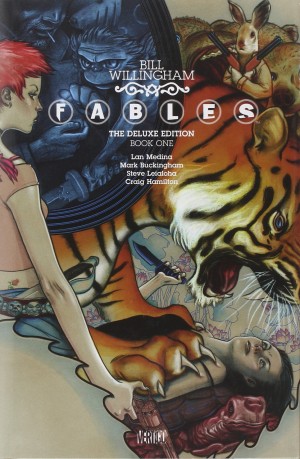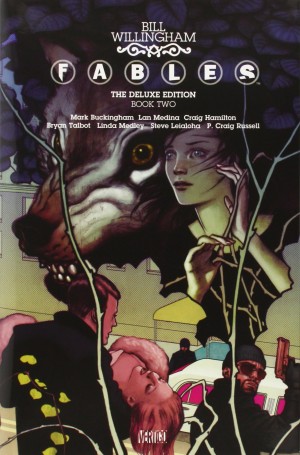Review by Frank Plowright
Jack of All Fables was one of many moments of inspiration on Bill Willingham’s part when conceptualising Fables. Why deal with assorted Jacks mentioned in fairy tales and nursery rhymes, he reasoned, when you can amalgamate them into one vainglorious trickster. Among an ensemble of strong personalities in Fables Jack proved an instant hit, prompting Willingham to have him banished from contact with main series and spun out into his own.
Don’t expect the conceptual density and incredible plot twists common to Fables. From the start Willingham and co-writer Matthew Sturges instead head into farce, using Jack’s plain unlikeable character in a series of old-fashioned knockabout comedies. While there are challenges, his smug self-serving swagger is centre stage all the time, and the supporting cast isn’t enough to counterpoint it. Only Gary, the Pathetic Fallacy, and his ability to bring inanimate objects to life engages the sympathy, but the background being built comes to fruition in Book Two. Jack rapidly becomes insufferable, in places his attitude to women borders on objectionable, and overall Jack of Fables rarely approaches the quality of the parent series. Very occasionally there’s a moment that surprises, but all too often the predictable route is the one taken.
Main artist Tony Akins is frustratingly variable. A few pages here and there show the artist he could be, but most show an artist having to hurry to complete 22 pages to a monthly deadline. Pages from every guest artist look better than those from Akins, and that’s no way to run a series.
Jack’s adventures are largely farcical, best represented by the time he spends in Las Vegas, with the rug pulled at the end of each of the four chapters. Before then we discover cutting ties with the Fables community just means Jack’s transfer to a rural facility that may resemble a small town, but is actually a prison. Jack’s personality, though, soon becomes tiresome.
The best material here is tales from Jack’s past. Steve Leialoha draws two chapters explaining the myth of Jack Frost as Jack seduces the Snow Queen, not yet as terrifying as she’d become, and Andrew Robinson draws a series of deals with devils very engagingly.
Don’t expect the same approach or quality as Fables and you’ll find some amusing moments and some background explanations dropped in passing, but you might be better off sampling some individual comics before springing for this expensive package, a new introduction from Jack notwithstanding. In paperback you’ll find this material as The (Nearly) Great Escape, Jack of Hearts and The Bad Prince.
